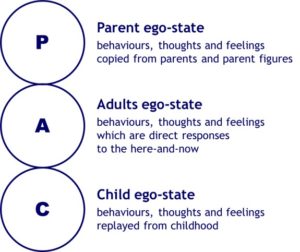Conflict is a part of every team’s life. However people often make the mistake of saying that no conflict is a sign of a healthy, high performing team. This is actually incorrect. Teams need conflict. Conflict means communication is happening, but there’s a big difference with good, healthy conflict and unproductive, unhealthy conflict.

Good conflict means you can work out issues, address concerns, share opinions and make plans to get things done. Bad conflict is argumentative, aggressive, toxic, often pointless and stressful. You might get the result you need, but at what emotional cost? Bad conflict is embodied by finger pointing, raised voices and an attitude of blame.
If negative conflict is entrenched in a team’s culture and ethos, it can be very hard to break the pattern. It becomes expected, almost inevitable, and people have real difficulty changing the pattern because aggressive, raised emotions are hard to control.
There’s plenty of work to be done to turn the team around if toxic conflict is a habit the team is stuck with. But it can be done. I want to give you one quick tip that might help you in the heat of the moment, when voices are rising and things are getting messy. Try to remember the acronym CALM. I often use acronyms – they are a great instant reminder. So when you are next involved in a budding conflict, try to remember this one.
‘C’ is for Controlled
Just by remembering this acronym, you have a better chance of wrestling control back from your ego. Your ego is the thing that is ready to fight. This is not your rational self – it is triggered, and ready to go to war. It’s not that difficult to take a quick pause – even counting to 5 or 10 – and take back control.
‘A’ is for Adult

We exist in different ego states, according to psychologist Eric Byrne, namely parent, adult or child. In our teams we should remain in an adult to adult state when communicating, and not revert for example to being parent to child. (You can find out more about this thinking in this article). Remind yourself to remain a rational, thoughtful adult in your team interactions.
‘L’ is for Listen
One of the biggest mistakes teams make is to have a lack of listening. Too often people want to tell others what they think, and will not be open to listening to others. This fault multiplies when the heat is turned up in the conflict situation. Try to actively listen to the other people. Ask lots of questions, maintain eye contact, don’t be distracted. Taking time to listen – and listening to everybody involved – will give you a chance to calm down and think, and show respect to the person talking.
‘M’ is for Measured
Finally, when it’s your time to talk, do so in a measured way. Don’t scream and shout, no pacing around flapping your arms, don’t talk over people and interrupt. Keep your communication measured – speak a bit more softly (but firmly) and get your point across succinctly and clearly.
I hope this acronym helps you if you do find yourself in a conflict that is getting out of hand. Some teams I know have created a conflict protocol that permits people to call each other out (respectfully and CALMly, of course), if someone is not being CALM. Sometimes they can’t see themselves doing it and they are grateful for well meaning teammates who can pull them up before it’s too late. Consider discussing this in your team and having CALM be something that you can have as part of the fabric of your team’s ethos.
I coach teams to help them create meaningful conflict protocols and behaviour expectations; if you would like to discuss how I could do this for your team, please get in touch today on 050 559 5711 or andy@theteamspace.com
HOW TO GET IN TOUCH
Call me on +971 (0)50 559 5711 or send me a message
